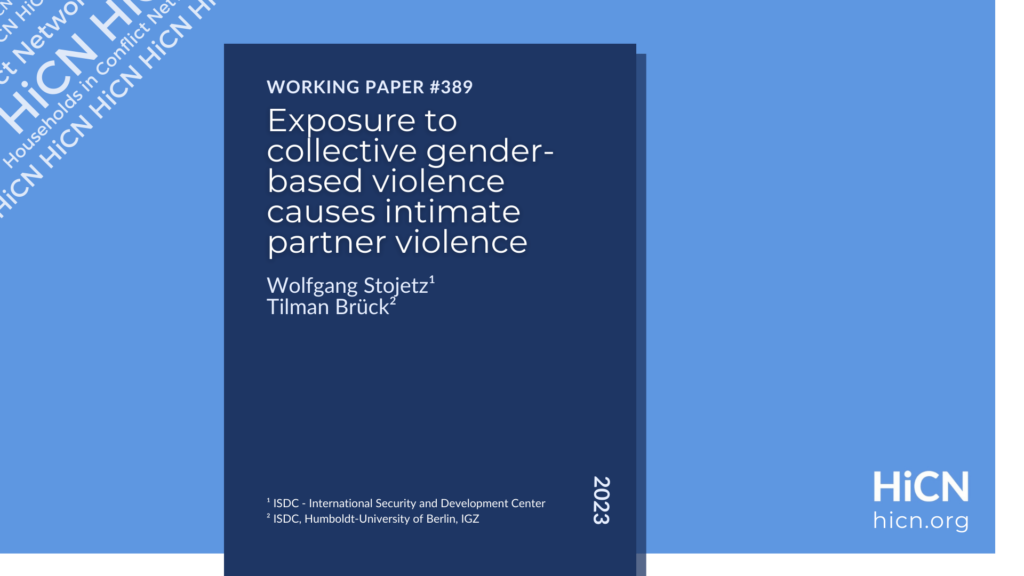
Globally, one in three women experience intimate partner violence (IPV) over their lifetimes. Yet, the factors that cause men to commit IPV remain poorly understood. We propose and test a causal long-term link from past exposure to gender-based collective violence to violent behavior against an intimate partner. Combining novel survey data from Angolan war veteran families and a natural experiment, we find that exposure to sexual violence by armed groups against women makes male veterans about 30 percentage points more likely to commit physical – but not sexual – violence against a female intimate partner 18 years later (on average). Our results are not consistent with standard explanations of IPV based on group norms and intra-household bargaining. Instead, we attribute the effect to a lasting reduction in self-control skills. These findings challenge standard approaches to preventing IPV and emphasize the potential of working with men, especially after episodes of collective violence.
This paper has since been published in the Journal of Development Economics.